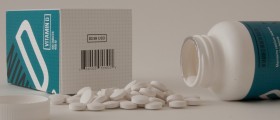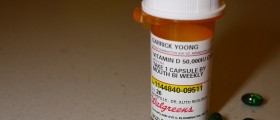
Vitamin D
This vitamin will be the topic of this text; more precisely, we will talk about the problems that can arise due to the overdose with the vitamin D. Every body requires nutrients, among which are vitamins, for a proper functioning. Vitamin A, E, B, K, D, C are some of the types of vitamins, but there are several more. Each of them has a different role in the body and it helps a body functioning. Fat and water solubility are also properties associated with vitamins. The most important are D3 and D2, among all the types of vitamin D. There are five types and they are D5, D4, D3, D2 and D1. The body levels of phosphorus and calcium are maintained by this vitamin. Rheumatoid arthritis, osteomalacia and rickets are some of the conditions that vitamin D prevents. Liver oil, cod oil, liver, fish, egg yolk, milk and sun rays are sources of this vitamin that makes the immune system stronger. But, a problem may occur if the dosages consumed are much greater than needed. This condition is named vitamin D overdose and we will see what it is.
Overdose
The body needs the adequate amounts of vitamin D every day. The amount of vitamin D that the adults need is 5 mcg, or 200IU, which can be achieved by standing in the sun for 10 minutes. The problem of overdosing is associated with the excessive use of vitamin D for longer period of time. This problem cannot happen if vitamin D is used in larger amounts in just one day. Vitamin D is stored by our body and this is why overdose needs time.
Diagnosing the problem may be tricky since the problems and symptoms it causes are nonspecific. The most common are dehydration, fatigue, irritability, general weakness, nervousness, constipation, weight loss, nausea, vomiting and muscle weakness. Side effects following vitamin D overdose are also possible. Some of them are complete renal failure and kidney stone. Also, chances of developing medical problems such as organ malfunctions, high blood pressure and heart diseases are increased due to vitamin D overdose. Mental retardation can occur in babies if a mother has suffered an overdose during pregnancy.
Treatment
Naturally, the elimination of this vitamin intake is the first step that should be done. Also, a doctor is always needed in cases of vitamin D overdose. The symptoms can be managed with the use of certain medications, while the use of supplements must be approved by the professional. Remember that everything we consume and put in our body has to be in normal amounts. If something such as vitamin D, for example, is consumed in inadequate amounts, under or below the needed range, a problem will occur. Try to avoid this and similar problems by sticking to the prescribed limits and always see a doctor for a consultation before you start using a medication or a supplement.

















Your thoughts on this
Loading...